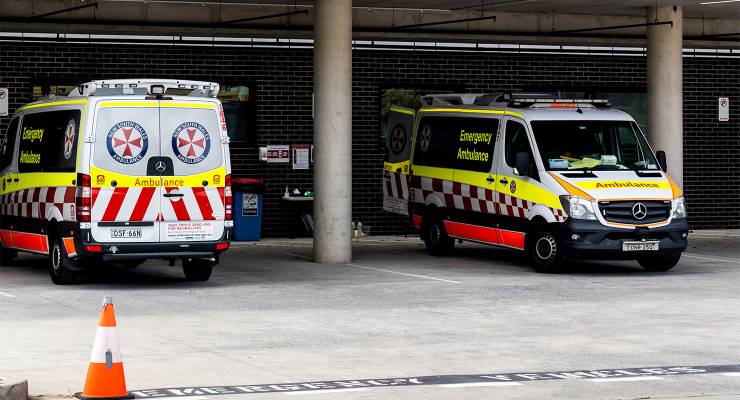
There’s been much recent media attention on the rollout of urgent care clinics (UCCs) across Australia as a panacea for the nation’s ailing health system.
In February, Health Minister Mark Butler announced the establishment of multiple UCCs comprising multidisciplinary teams that, theoretically at least, use a range of health workers spanning different professions as an innovative way to address the sectoral challenges nationwide.
There’s no doubt this is a welcome step forward and a much-needed initiative in expanding access to primary care, albeit on a fairly limited basis. However, much-needed reforms are still required across the health system, particularly for communities in regional and remote areas.
Critically, the continued omission of paramedics as part of those touted health teams, working alongside GPs, nurses and other health professionals, represents a missed opportunity for the government to realise the UCC model’s full potential.
We’re still short of detail on how UCCs will operate, but it’s clear “team-based care” is at the heart of the government’s vision as a way to remedy GP shortages, the pressures on hospitals and ambulance services, and the difficulties many communities have in accessing health services and healthcare professionals.
At the Australasian College of Paramedicine, of which I am the CEO, this is an approach we wholeheartedly support and have long advocated for. But where we differ with the government is in the narrow parameters that are being articulated in the proposed scope of those teams.
If we as a nation are serious about systemic change across the health sector, there must be broader understanding and recognition among national and state governments of the value and utility of paramedics as a primary health workforce.
The groundwork has already been laid by countries such as the UK and Canada, where paramedics are integrated as part of multidisciplinary health teams, and by progressive clinics in Australia and Aotearoa New Zealand, where their inclusion has resulted in improved and more timely health provision, a reduction in emergency department presentations and ambulance ramping, and less pressure on GPs, among other demonstrable benefits.
The same is true for the growing number of community paramedics working throughout the country to provide in-home care and longer-term support for patients who are better served by such out-of-hospital treatment options.
We have an opportunity to make this model of person-centred care a reality via the UCCs. Providing the space for paramedics to treat acute and urgent but non-life-threatening presentations in these clinics makes sense. It’s what they do each and every day. And more importantly, we know it works and benefits everyone within the health system and across communities — and economically. It’s a win-win for all Australians.
As we embark on what is shaping up to be a new era of healthcare, we urge the government to expand its well-intentioned vision and ensure that UCCs are operating to their full potential, with paramedics able to take their place alongside other health professions to deliver a more effective healthcare model.








Good luck with this. Here in WA we use volunteers almost exclusively. St John Ambulance keeps its contract with the Health Dept by being the cheapest in the known universe. The money is spent in Perth, where the votes are, and almost everyone else is fed BS (ordinary people doing extraordinary things). As we don’t have volunteer butchers, bakers or bank tellers, it seems strange that we allow it in emergency care. So please bring in several hundred more paramedics, and housing for them and for the “GPs, nurses and other health professionals”.
Placing these UCCs where the need is greatest makes a huge amount of sense. Meekatharra is fairly central for a trial, and on the main highway, with an airport. A 24/7 armed guard could be needed – the Meekatharra School of the Air was relocated to Geraldton after being burnt down a few times. But such social disfunction is symptomatic of the need for a UCC. Of course, living behind 3 metre chainlink fences and razor wire might be claustrophobic and deter staff? In fact it’s possible that the climate, absence of facilities and multiple barista-bars (coffee is life) would render staffing impossible – so let’s call the whole thing off!
I agree with the above, BUT, how are you going to get around the Doctors Union?
They have power over the Pollies that the CFMMEU can only dream about.
No urgent care clinic anywhere in the world has reduced pressure on hospitals/ patient flow. It is not great policy.
We are facing a tsunami of chronic illness and medicalised ageing which will continue to fill bursting hospitals and drain the public purse.
Urgent care will keep low acuity consumers out of EDs. This is just duplication.
Not MBBS then? Agreed, a useful and relevant comment.
“We’re still short of detail on how UCCs [Urgent Care Clinics] will operate, but it’s clear “team-based care” is at the heart of the government’s vision as a way to”
….
cut spending on the entire public health system, by de-skilling health care, allow the closure of tertiary (teaching) hospitals, and further cutting real Medicare rebates. Agreed, the greater use of paramedics to treat complex conditions once requiring a doctor, is a substantial money-saving measure. Already forgotten the obvious underperformance of the 24-hour GP clinics attached to EDs?
Urgent Care Clinics are simply a smokescreen for the benefit of people who think that activity equals achievement. Self-interest groups promoting this agenda because they see mileage for themselves only assist the process.